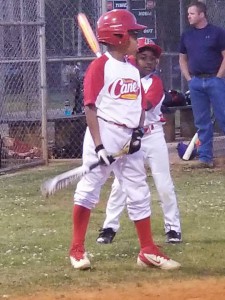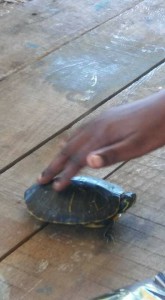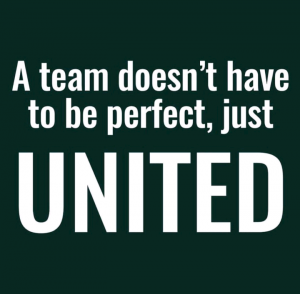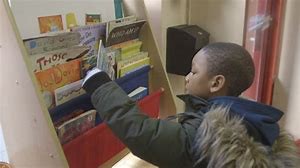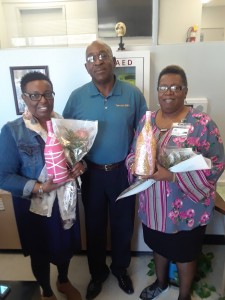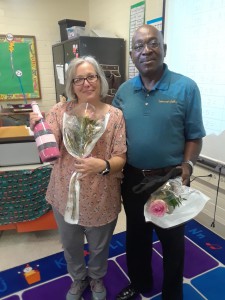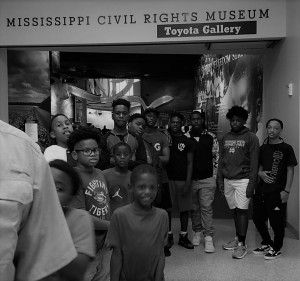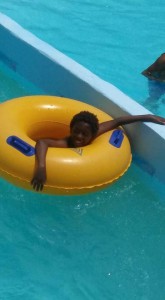About Us
Our History
A young mans rite of passage into manhood involves men leading by example. Tomorrow’s Fathers was the vision of two men in 2015. For years these men volunteered their time in the public school system and community. With dedication the pair outlined a program that would continue to strengthen the relationship between parents, children, school, and community. The group incorporated and received nonprofit status in 2017.
Our Vision
We as fathers aim to teach the next generation of men to be able to meet all the needs of their communities. Young people who experience an opportunity gap benefit most from have mentors.
52% less likely to skip school
55% more likely to enroll in college
46% less likely than to start using illicit drugs
78% more likely to volunteer regularly
90% are interested in becoming a mentor
81% more likely to participate in extracurricular activities
130% more likely to hold leadership positions.
Our Future
Inspiring young boys to become men and equipping them with the tools to be positive role models, capable industrialist, optimal spouse, effective heads of households, and inventive citizens.
Why Choose Us?
1
Volunteer Mentors
Tomorrow’s Fathers, Inc. uses real world experienced men that volunteer their time and talents with a personal interest in investing in the youth’s future.
2
Yearly Service
Tomorrow’s Fathers, Inc. offers programs and activities throughout the entire year at various times and locations.
3
Easy Process
Tomorrow’s Fathers, Inc. has a free application that allow your child access to the mentors and participation in programs and activities.
Highlights

Mississippi Power, a southern company, provides electricity services to the state. Their mission is reliability, environmental stewardship, economic development, energy conservation, and community commitment. Eddie Kelly, the Meridian, MS division manager, eagerly responded to the opportunity to donate to Tomorrow’s Fathers.
We greatly appreciate their contribution in 2017.
Media & News
Events
Field Trip- Saturday, August 18, 2018 – Jackson, MS – Mississippi Civil Rights Museum and Playtime Entertainment Center.
Community Service – Sunday, August 19, 2018 – Meridian, MS – Meridian Public Library – Students will receive documented community service hours.
Monday, October 29, 2018 – Creative art and flower delivery to cancer survivors in the community.
Thursday, January 3, 2019 & Friday, January 4, 2019 – R.O.P.E.S. (Saturday School) registration from 1pm-3pm @ McAlister’s Bonita Lakes Meridian, MS
Testimonials
July 21, 2018
Our 11 year old son stated that he wants shoes for school: meaning more than 1 pair. My husband and I decided he needed to learn that not everything will be handed to you, you have to work for it. So he has been asking family members if they have anything he can do for money. As luck would have it, he heard about this organization from some young men in the neighborhood one day. So he made the call himself.
Thanks Tomorrow’s Fathers for giving our son some work experience today. He hasn’t stopped talking about what you all did ad what you told him about the value of a dollar, investing, tithing, and saving. It’s funny how parents can say the same thing to their children; but the seem to be more interested when they hear it from another person. Thanks again it never hurts to have more than one positive male involvement.
Jeakisha Johnson
Article 1
THANKS TO FIRST TEE FOR PARTNERING WITH US SUMMER 2018!
http://www.meridianstar.com – Ida Brown
Golf Fore Kids!
The First Tee of Meridian offers Golf and Life Skills lessons for ages 7-17. For more information, call Gloria at (601) 527-7629 or visit the website: www.thefirstteemeridian.org.
Meeting former President George W. Bush at The First Tee 2015 Network Meeting last week in Dallas was a great moment for Meridian resident Al Willis. However, Willis said he has experienced even greater moments with the youth he mentors in the international junior golf program that promotes life skills and leadership through the game of golf.
“When I became a coach with The First Tee, it was one of the most gratifying things I’ve ever done in my life,” he said. “I thought being a volunteer cop, a volunteer sheriff deputy and a professional firefighter was something. But until I became a golf professional and coach with First Tee, that’s when my life really came full circle.”
Serving boys and girls ages 5-17, The First Tee offers a unique perspective toward learning golf, while appreciating the positive personal and social values associated with a lifelong game and physical fitness activity. The program includes a Life Skills Education Program, which gives participants multiple opportunities to be exposed to, experience, develop, apply and eventually master interpersonal skills, self-management, goal-setting and resilience skills through specific techniques that can be utilized on and off the golf course.
Willis, who serves as program director of The First Tee of Meridian, said he believes the program has made a difference with local youth. Since its inception in 2007, there have been more than 685 participants
“We don’t just teach them golf, we also teach them life skills,” he said. “And we’re there for them, from the time they are introduced to the program until long after they have completed it.”
Nine Core Values
The First Tee has established Nine Core Values which, according to Willis, represent some of the many inherently positive values connected with the game of golf.
“One of the things we don’t have in our society right now is empowering kids to do whatever they can do and teaching those core values – that’s something missing in this community and all over the world,” he said. “The First Tee stays with those core values, we don’t deviate from them. They are life skills that will equip young people for a lifetime.”
The Nine Core Values are:
• Honesty, the quality or state of being truthful; not deceptive.
Golf is unique from other sports in that players regularly call penalties on themselves and report their own score.
• Integrity, strict adherence to a standard of value or conduct; personal honesty and independence
Golf is a game of etiquette and composure. Players are responsible for their actions and personal conduct on the golf course even at times when others may not be looking.
• Sportsmanship, observing the rules of play and winning or losing with grace.
Players must know and abide by the rules of golf and be able to conduct themselves in a kind and respectful manner towards others even in a competitive game.
• Respect, to feel or show deferential regard for; esteem.
In golf, it is important to show respect for oneself, playing partners, fellow competitors, the golf course, and for the honor and traditions of the game.
• Confidence, reliance or trust. A feeling of self-assurance.
Confidence plays a key role in the level of play that one achieves. Players can increase confidence in their abilities by being positive and focusing on something they are doing well regardless of the outcome.
• Responsibility, accounting for one’s actions; dependable.
Players are responsible for their actions on the golf course. It is up to them to keep score, repair divots, rake bunkers, repair ball marks on the green, and keep up with the pace of play.
• Perseverance, to persist in an idea, purpose or task despite obstacles.
To succeed in golf, players must continue through bad breaks and their own mistakes, while learning from past experiences.
• Courtesy, considerate behavior toward others; a polite remark or gesture.
A round of golf should begin and end with a handshake between fellow competitors. Players also should be still and quiet while others are preparing and performing a shot.
• Judgment, the ability to make a decision or form an opinion; a decision reached after consideration.
Using good judgment is very important in golf. It comes into play when deciding on strategy, club selection, when to play safe and when to take a chance, the type of shot players consider executing, as well as making healthy choices on and off the golf course.
Saturdays at Lakeview
The First Tee of Meridian program is conducted from April-December at Lakeview Golf Course. Participants must complete six to eight sessions – each session is held on a Saturday – before advancing to the next level.
The five program levels are:
• Player (required minimum age 7) – Introduces playing the game of golf with special emphasis on learning golf and The First Tee Code of Conduct, appreciating the rules and etiquette of the game and developing a game plan for golf and life.
• Par (recommended minimum age 9) – Focuses on interpersonal communications and self-management skills.
• Birdie (recommended minimum age 11) – Emphasizes goal setting.
• Eagle (recommended minimum age 13) – Emphasizes resilience skills, conflict resolution and planning for the future.
• Ace (required minimum age 14 or entering 9th grade) – Once a young person has progressed through all program levels, he/she can become Ace-certified, focusing on setting goals for golf, career education, and giving back to the community.
Golf equipment is provided. Participants are required to wear a polo-style shirt.
Willis noted that the current issue of Long Creek Reservoir and its leaky dam has had a profound impact on the junior golf program. More than six months ago, the city announced that the reservoir would not be completely drained, however funds have not been found to make needed repairs to a faulty dam. Meanwhile, golfers complain that the city still has made no provisions to water the fairways at Lakeview Golf Course, which is the golf course’s main source of irrigation and has been unusable since water levels at the lake have been lowered.
“We’re in the process of getting our main facility open at Lakeview,” Willis said. “Because of the water situation, it is keeping us from doing a lot of our program. We need water for the greens. I’m hopeful that the city with expedite that.”
Should the problem not be resolved by the program’s beginning, Willis said an alternative plan will be enforced.
“We’ve ordered some hitting mats, so we’ll be able to hit on the mats out there,” he said.
In addition to the program at Lakeview, The First Tee of Meridian has sponsored the First Tee National School Program (NSP) at Lauderdale County Public School for three years. NSP introduces the game of golf and The First Tee Nine Core Values and Nine Healthy Habits to elementary students during physical education classes. Plans are to incorporate the program in the Meridian Public School District, Willis said. In a time of increased juvenile crimes, substance abuse and other issues affecting youth – locally and nationally – Willis said The First Tee program can make a difference.
“This program teaches our children something that we are really lacking right now – respect,” he said. “The etiquette of the game, the etiquette of things in general and what they see and do on the golf course, it’s imperative for that to be ingrained in their bodies and minds so that we can bring up better kids.
“In most sports, you’re only going to last for a little while. But in golf, you can play for a lifetime,” Willis said. “And the impact we make on the lives of kids through The First Tee program doesn’t last for just a little while – it’s forever.”
Article 2
THANKS TO PATHWAYS TO GRADUATION FOR PARTNERING WITH US SUMMER 2017!
http://www.meridianstar.com – Michael Neary
For some, summer may be a time to toss the books aside, slide the paper under the bed, fold up the Chromebooks and stash the pencils deep in the drawer. But throughout Meridian, and beyond, organizations are helping students to dig into subjects that might have given them trouble during the school year.
One of those endeavors is called Pathways to Graduation, a program in its second year, conducted by Multi-County Community Service Agency, Inc., at 2900 St. Paul St.
Ronald Collier, executive director of Multi-County Community Service Agency, Inc., said there are a number of programs in the area designed to help children academically — but there’s also, he said, a strong need for such programs.
“Certainly there are other programs, but there are so many youth in need of services that we felt the need to make it a part of this agency,” Collier said. “If we are ever going to eradicate poverty, we have to start with this generation of children so that they can become educated and aspire to go forth and become part of our workforce.”
The program, free of charge for participants, receives funding through a grant from The Phil Hardin Foundation. Collier said the program runs year-round, and he said he wants to reach more families. The Multi-County Community Service Agency provides transportation.
Students from middle through high school are participating in the tutoring program, honing their skills subjects such as math and reading, and also branching beyond academics with field trips and various other activities.
Collier said the students attend from 9 a.m. to 3 p.m. during the summer, Monday through Thursday.
The sorts of obstacles that students need to overcome in order to excel, Collier said, vary widely.
“I think there are a lot of impediments, including poverty, bullying, hunger,” he said. “You can’t teach a hungry mind to learn. There are social issues that are really out of the hands of the children but that affect their ability to learn.”
Collier noted discipline, as well.
“A big factor is discipline,” he said. “In many instances, if the child doesn’t have the discipline, they don’t have a propensity to learn.”
But Collier also stressed the caring atmosphere the program creates.
“We’re trying to create a holistic program for them to not only come here and learn, but to get whatever they need to feel like they are loved by us,” he said.
Collier noted, too, contributions to the program from neighboring organizations, including Tomorrow’s Fathers, a group that helped bring young men into the program for tutoring.
“I had the privilege of meeting with Tomorrow’s Fathers,” Collier said. “Whose vision is certainly is to mentor young men … and also to tutor them so they have the skills to go with the other foundational aspects of what it takes to become a productive man in our society.”
The Rev. Randall Bohannon, who also works with Tomorrow’s Fathers, noted that a recent trip to Biloxi helped students to see education as something that can exist alongside recreation — or as something that can be celebrated and enjoyed.
“We’re trying to help them to know the value of education along with pleasure,” said Bohannon, who tutors students in the program.
The Pathways to Graduation program includes about 20 students, both male and female.
Collier said staff members provide a breakfast for the children, along with an opportunity for physical exercise. Students eat lunch, off-site, through the Summer Nutrition Service Program, and the Multi-County Community Service Agency staff provides transportation.
“We’ve tried to take away all of the impediments,” Collier said.
On a recent afternoon, staff members pondered the power of close, mentor-like contact between adults and students. What the children who come for tutoring crave most, explained Lynette Nave, is to work with someone in a more personal way than they might interact in a regular classroom.
“They like it when they’re asked questions individually,” said Nave, a senior at Alcorn State University who’s working as a tutor this summer with the program. “They like that one-on-one attention.”
Helping students to improve their reading is a key task during the tutoring, Nave said — and personal connection, again, is vital to that endeavor.
Tutor Cedric Ruffin, who also works with Tomorrow’s Fathers, stressed the importance of locating subjects that spark children’s interests and then building on them. He mentioned texts on the Civil Rights Movement, and on various kinds of film.
“We try to build on previous knowledge or interest, and we try to tie that in to what they’re reading,” he said.
Ruffin noted the way he helps the students to see the complexity in their everyday lives — and to think hard, and critically, about what’s around them. That might include something as seemingly ordinary as a television show.
“We’re trying to tap into those critical thinking skills,” Ruffin said.
Sometimes, too, a well-chosen film can supply inspiration. Nave said the group watched the film “Freedom Writers” together.
“There were a lot of students in that movie who weren’t academically or mentally ready for the world, but by the end of the movie they kind of knew that you shouldn’t give up on life,” she said.
Jamaurion Spencer, a 17-year-old Meridian High School junior, is volunteering with the program this summer.
“I like being around kids,” he said. “I like playing sports, being a good role model, leading them to the right path.”
For Joshua Brown, a 20-year-old intern for The Riley Foundation working with the program, academics play a big role in the way that he interacts with the students.
“I want to get them more prepared for school, so they’ll succeed in life,” Brown said.
Brown, who will study biochemistry at the University of Southern Mississippi as a junior this fall, is among several mentors in the program — excited about school and pursuing educational paths of their own — who can help them to do just that.




